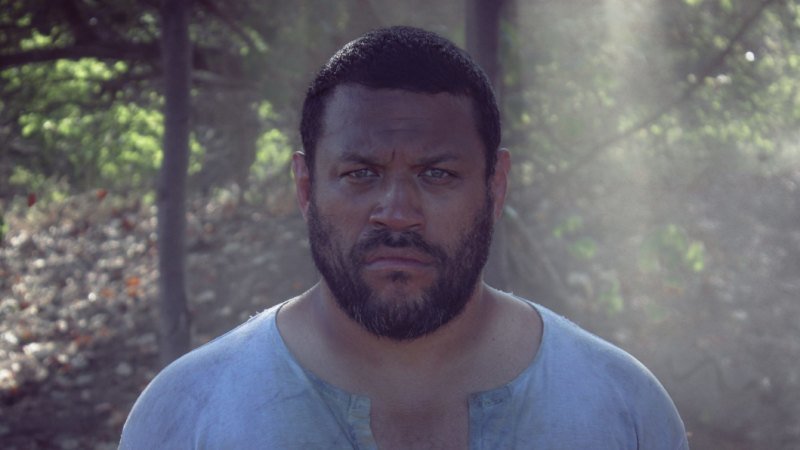"You may not know much about us," Aaron Fa'Aoso says at the start of each episode in this three-part documentary series (ABC, concluding Tuesday 8.30pm, and on iView thereafter). And much as it shames me to say so, I am guilty as accused, your Honour.
The Torres Strait Islands and the people who call them home, are the subject of Blue Water Empire. Presenter/narrator/co-producer Fa'Aoso – whose work as an actor has included roles in dramas R.A.N. (Remote Area Nurse), East West 101 and The Straits, as well as the sketch show Black Comedy – pronounces himself a "proud descendant of the Samu and Keodal clans of Saibai Island", though his family relocated decades ago, along with many others, to northern Queensland in the face of rising seas levels.
Aaron Fa’Aoso doesn’t just narrate Blue Water Empire, he turns up in three roles in the documentary series.Credit:ABC
Fa'Aoso also claims "our story has changed the history of Australia, and the world". That’s a little hyperbolic, perhaps, but given the lack of awareness mainstream Australia has of the culture, the history – hell, even the geographic location – of the Torres Strait Islands, a little noisy clamouring for attention can probably be excused.
The archpelago has been settled for thousands of years since rising sea levels cut off the land bridge between Cape York and Papua New Guinea (about 8000 years ago), but people live on only 16 of the more than 250 islands in the region.
Prior to European contact, the economy was based around agriculture, fishing, trade and barter, and warfare. It was an indigenous population but, as Fa'Aoso says, "We are not mainland Aboriginal Australians. We are a separate people, with our own culture, language, and way of life. We are of Melanesian heritage – headhunters, traders, men and women of the sea."
The opening scenes of Blue Water Empire are violent.Credit:
That "of the sea" bit is a theme that echoes throughout the series and gives it its title. There's pride in it, but also a sense of sadness, because the story that emerges is of an empire wrested away by the introduction of European notions: of trade (with wages, often withheld, and profits, mostly sent offshore); of spirituality (indigenous religion and culture supplanted from the mid-19th century by Christianity); and of the islands' place in the world (from self-sustaining empire to dependency).
But there's also pushback, strikes, even armed uprisings. This is, after all, the place at the centre of Eddie Mabo's victorious land-rights claim.
There are echoes in this story of the one told in Sam Neill's The Pacific: In the Wake of Captain Cook. Contact with Europeans was both inevitable and deleterious as far as the traditional culture was concerned, but there are faint signs of the emergence of a "hybrid" culture that marries the best of the indigenous and the colonising cultures into something vaguely hopeful and forward looking.
To be honest, though, the reasons to be hopeful for the future of these remote island communities lie more in the pride and resilience of the people, and their willingness to fight back, than in any evidence of changing outcomes.
Prior to European contact, the economy was centred on the sea and barter.Credit:ABC
A cast of well-known actors crop up in re-enactments that range from headhunting raids from Papua 300 years ago to the discovery of a rich supply of pearls (Ryan Corr plays Captain Banner, the man who sparks a "pearl rush" in the 1870s, to rival Victoria's Gold Rush two decades earlier), and Roy Billing plays the Queensland bureaucrat, Superintendent John McLean, whose style of administration might be characterised as malign indifference.
Resources exploited, culture torn asunder or proscribed, wages withheld and misappropriated by government and managers because the natives were deemed unfit to manage their own money. It's all so familiar and depressing.
They may not be mainland Aboriginal Australians, but on this telling the inhabitants of this blue water empire have been treated just as shabbily and shamefully as if they were.
Follow the author on Facebook at karlquinnjournalist and on twitter @karlkwin
Source: Read Full Article



